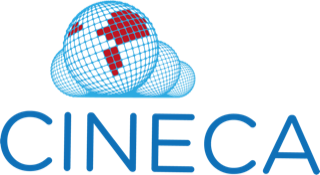Date: 26th February 2023
Time: 13:00-16:30 CEST / 14:00-17:30 CAT
Location: CTICC, Cape Town, South Africa
Format: In-person (There will be no option to join remotely!)
Registration: https://www.cineca-project.eu/workshop/federated-analysis-registration
Workshop organisers: Nicola Mulder; Mamana Mbiyavanga - (CINECA, UCT, South Africa), Saskia Hiltemann - (CINECA, EMC, The Netherlands), Kim Gurwitz; Marta Lloret Llinares; Daniel Thomas Lopez; Carles Garcia Linares - (CINECA, EMBL-EBI, UK)
Contact: Kim Gurwitz, Mamana Mbiyavanga
-
Personalized medicine is making significant progress, with a large amount of human biomedical data being generated by national-scale biobanks and healthcare initiatives. The traditional method of carrying out genetic analysis is to apply for access to the dataset, download the data locally, and run custom analyses. However, the sheer size of the data, which increases security requirements, and jurisdictional restrictions on data, make this approach more challenging and less scalable.
Over the last few years, there has been a paradigm shift in human genetic and phenotypic data sharing and access to a more decentralized model. In a decentralized model, data can be shared in a federated approach, and data analysis can be performed without moving the data, using standardized interfaces.
The CINECA project has built infrastructure to make population-scale genomic and biomolecular data accessible across international borders by leveraging global investment in human cohort studies from Europe, Canada, and Africa for federated research and clinical applications. Hence, CINECA reuses existing resources in partner institutions that host and manage cohort data and facilitates the integration of these resources using community standards such as those developed by the Global Alliance for Genomics and Health (GA4GH).
During this workshop, we will present an end-to-end federated data analysis use case covering federated data discovery and access, bioinformatics analysis, and ethical and legal considerations for responsible and fair data sharing flow. The workshop will comprise a mix of short lectures and demos with some hands-on tutorials if time permits. Lectures will introduce key concepts for federated data sharing and analysis, GA4GH Beacon API, GA4GH Passports and Visas, and the Data Use Ontology (DUO), followed by demo examples on real-world research and clinical applications. Note that this event will be held in person, and there will be no option to join remotely.
-
Beacon Discovery
Data Access
Galaxy Use Case
Clinical Use Case
Ethical considerations
-
After this course, participants should be able to
Identify a high-level overview of the end-to-end researcher journey for human cohort data (federated data discovery, ELSI considerations, data access and authentication, federated analysis)
Describe some of the ethical, legal and societal considerations to take into account when merging human cohort data
Recognise how to use Beacons for data discovery (introductory hands-on)
Describe the process of obtaining access to controlled access human data
Have a first look into to using the Galaxy platform for data analysis (introductory hands-on)
Describe how federated analysis could be applied to a genetic/genomic study
-
All scientific community members, including data managers, curators, bioinformaticians, and data scientists.
-
None.
Participants are encouraged to check out CINECA short videos and past webinars (https://www.youtube.com/playlist?list=PLD6bAdANKoMU_zH6E0oSlpsJEZyY9z9SV), highlighting some topics relevant to this workshop.
-
Application link: https://www.cineca-project.eu/workshop/federated-analysis-registration
Registration close: 15th February 2023
Registration fee: FREE
All applicants will be notified of the outcome of their application by 17th February. Applicant's experience and expectations from the workshop, as well as geographic diversity and gender balance, will be considered during the selection process. Incomplete applications will not be considered.
Maximum 30 participants
No funding for travel or accommodation costs will be provided
Lunch and coffee break refreshments will be provided; special dietary requests will be accommodated.
Note that this event will be held in person, and there will be no option to join remotely.
Workshop programme
|
Time (SAST) |
Session |
|
12:45 - 13:00 |
Registration |
|
13:00 - 14:00 |
Lunch & Networking |
|
14:00 - 14:15 |
Introduction |
|
14:15 - 14:35 |
Ethical, legal and societal considerations (ELSI) |
|
14:35 - 15:20 |
Beacon Discovery (Hands on session) |
|
15:20 - 15:40 |
Authorisation and Data Access |
|
15:40 - 16:10 |
BREAK |
|
16:10 - 16:40 |
Galaxy Use Case |
|
16:40 - 17:10 |
Polygenic Risk Score (PRS) Use Case |
|
17:10 - 17:30 |
Close |
-
The CINECA (Common Infrastructure for National Cohorts in Europe, Canada, and Africa) project aims to develop a federated cloud-enabled infrastructure to make population-scale genomic and biomolecular data accessible across international borders, to accelerate research, and improve the health of individuals across continents. CINECA will leverage international investment in human cohort studies from Europe, Canada, and Africa to deliver a paradigm shift of federated research and clinical applications. The CINECA consortium will create one of the largest cross-continental implementations of human genetic and phenotypic data federation and interoperability with a focus on common (complex) disease, one of the world’s most significant health burdens. CINECA has assembled a virtual cohort of 1.4M individuals from population, longitudinal and disease studies. Federated analyses will deliver new scientific knowledge, harmonisation strategies and the necessary ELSI framework supporting data exchange across legal jurisdictions enabling federated analyses in the cloud. CINECA will provide a template to achieve virtual longitudinal and disease-specific cohorts of millions of samples, to advance benefits to patients. It will leverage partner membership of standards and infrastructures like the Global Alliance for Global Health, BBMRI, ELIXIR, and EOSC driving the state of the art in standards development, technical implementation and FAIR data.

